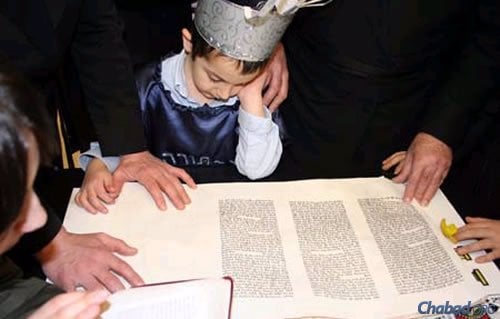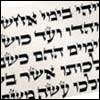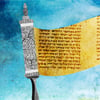
One of the four mitzvahs of the Jewish holiday of Purim is to hear the reading of the Megillah, a scroll on which Mordechai and Esther wrote the amazing turn of events that brought about the Purim miracle in Persia in 356 BCE.
Handwritten on parchment in the same ancient calligraphy as the Torah scroll, the Megillah scroll (with no vowelization) must be read and heard both on Purim night and Purim day—the 14th day of the Hebrew month of Adar II—which this year will be celebrated on Saturday night, March 15, and Sunday, March 16. (The holiday is celebrated the following day in Jerusalem, a biblical “walled city,” on the 15th day of the month of Adar II).
Learning to read the entire Megillah (also known as the “Book of Esther”) can present a challenge, even for seasoned Torah readers. The style of cantillation is different, and the 10-chapter scroll is significantly longer than an average Torah portion and is to be read with no breaks.
But high-tech help is on the way. Rabbi Levi Galperin of Chabad.org notes that a newly released online app, the Megillah Trainer, will make the training much smoother for beginning and experienced readers alike.
The tool assists students by highlighting each word as it is sung, allowing them to go at their own pace. Supported on mobile devices and tablets, it is ideal for those learning while they are on the move.

The technology behind the Megillah Trainer is the same as Chabad.org’s Torah Trainer, which now includes all 54 Torah portions, their haftarahs, and the blessings recited before and after the readings.
The Megillah Trainer currently includes two reading styles.
One features the voice of Rabbi Chaim B. Alevsky, creator of Tools for Torah, who reads in a lilting voice using the Modern Hebrew intonation. The other features Rabbi Levi Kaplan, director of operations at the Rohr Jewish Learning Institute (JLI) and director of the Council of Chabad Cantors, who reads in a traditional, Russian-style Eastern European manner in his signature baritone.






